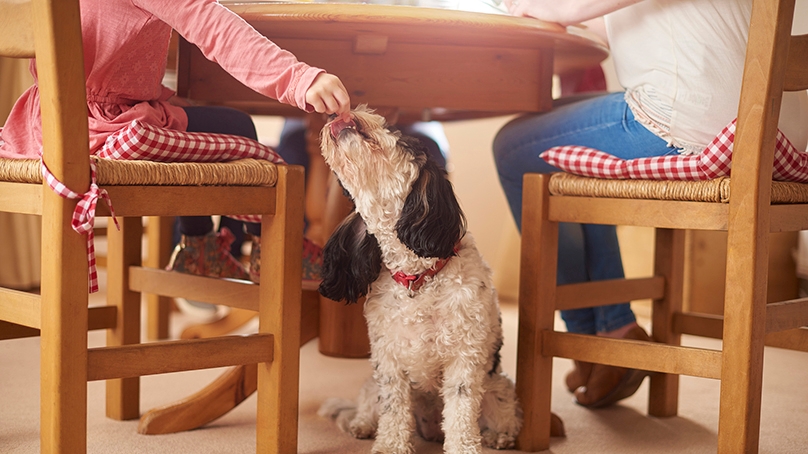4 People Foods to Never Share with Your Pet
April 16, 2018 | Food Lion


Your pet is such an integral part of your life that you likely want to share everything with him. While sharing toys or a comfortable spot on the couch is great, sharing food is a bit trickier. Go over this list of top foods that are bad for dogs and cats before feeding them from your plate.
1. Grapes and Raisins
Fruits and vegetables are normally healthy additions to your pet's diet, but that's not the case with grapes and raisins. These are some of the most toxic foods for cats and dogs (and ferrets, too). It's not entirely understood why these foods can lead to kidney failure in pets, but even a small amount can cause uncomfortable and severe symptoms for your pet. If you're wondering what cats can eat, raisins should definitely stay off the menu.
2. Macadamia Nuts
Peanut butter is a popular treat for dogs and cats — they can't seem to get enough of it. The safety of peanuts doesn't extend to macadamia nuts, however. Macadamia nuts, along with walnuts and pecans, can disrupt nerve function in your pet. Symptoms such as lethargy, vomiting, hyperthermia, and trouble walking can appear as few as 12 hours after ingestion.
3. Raw Meat and Eggs
When asking yourself what dogs can't eat, raw meat probably doesn't come to mind first. While your pet might have no problem scarfing this down, doing so puts him at risk for salmonella or E. coli poisoning. Meat and eggs are great treats or supplements to your pet's diet; just be sure to cook them first.
4. Candy
Not all candy is dangerous to pets, but this falls into the realm of "it's better to be safe than sorry." Xylitol is an artificial sweetener commonly used in candy and other sweets. This sweetener causes an insulin release within 10–15 minutes after ingestion, according to the Pet Poison Helpline. In larger doses, it leads to liver failure. Other candies that don't contain xylitol can still pose a choking hazard for small pets.
If you're concerned that your pet has eaten something he shouldn't have, contact the ASPCA's animal poison control hotline at (888) 426-4435. Help is available 24 hours a day, 365 days a year.






Create Your Display Name